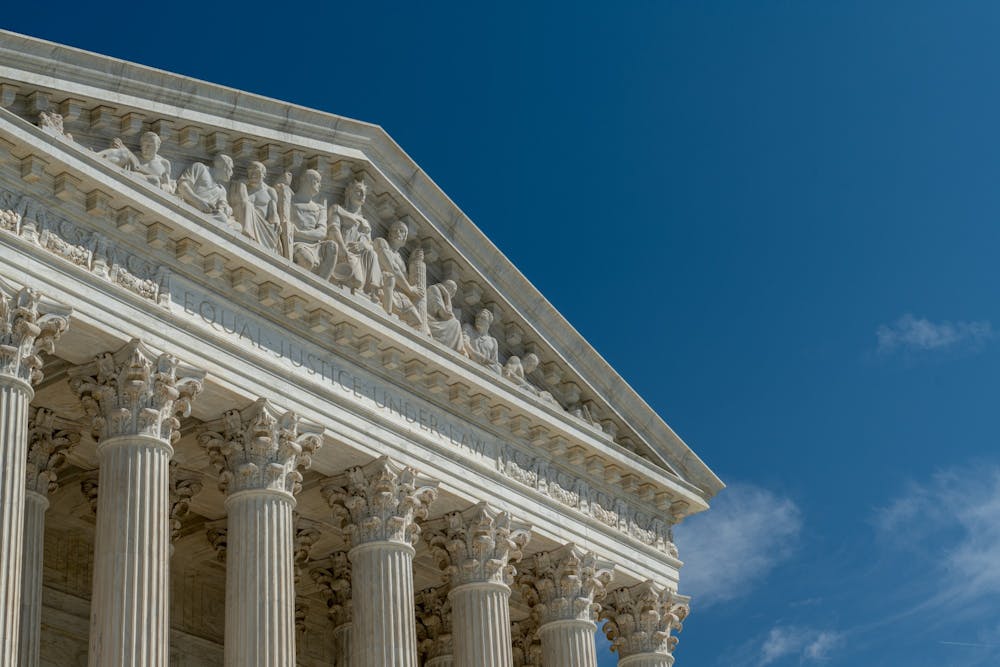The current U.S. Supreme Court seems intent on sending the United States back to the 20th century. First it was overturning Roe v. Wade and challenging tribal sovereignty, now the Supreme Court has the potential to overturn another 1960s precedent — affirmative action. It is extremely concerning to see a handful of old, white men — who are both unelected and who hold life-long appointments — make decisions that will primarily affect low-income people of color. This Court is set to make a decision by June on two cases which challenge the constitutionality of considering race as a factor in college admissions.
It is important to consider the purpose and intention of affirmative action. Affirmative action arose from the civil rights movement and was intended to expand the opportunities for women and underrepresented minorities in employment, which eventually expanded to colleges and universities. The original executive orders which eliminated racial discrimination in employment were created and supported by several U.S. presidents, including John F. Kennedy, Lyndon B. Johnson and Richard Nixon. The phrase affirmative action derives from the exact words that Johnson used in Executive Order 11246 to describe the manner in which employers should act to ensure racial equity. Over six decades of affirmative action have paved the way for more women and people of color to pursue opportunities that would have otherwise been impossible under the previous legal racial discrimination that occurred in employment and education.
Despite all the good that has arisen from affirmative action, it has also been a source of controversy. The most recent challenge began when Students for Fair Admissions filed lawsuits against The University of Texas, The University of North Carolina-Chapel Hill and Harvard on the basis of race-based discrimination in college admissions. They claim that white and Asian students are being discriminated against in the admissions process. Much like the plaintiffs of another case the Supreme Court is hearing regarding the Indian Child Welfare Act, SFFA is essentially claiming reverse racism against a policy that is intended to protect minorities from historically racist policies.
These cases are a blatant example of the zero-sum mentality that prevents the alliance of racial minorities and instead creates a kind of oppression Olympics pitting minorities against one another. This zero-sum mentality manifests itself as the belief that admission of more Black or Latinx students means that a spot is being taken away from an Asian or a white student that has a higher test score or a higher GPA. SFFA claims that color-blind admissions is best for everyone and that affirmative action tells Black and Latinx students that they are less intelligent and less capable of scoring highly on tests and were only accepted based on their race. Is SFFA claiming that students of color accepted into elite universities have not earned their spots, especially since many selective universities claim to use a holistic approach? What SFFA does not consider is the extensive research on the racist and eugenicist origins of standardized testing and how historically racist policies — like exclusionary housing practices, medical racism and more — have resulted in less opportunity for many people of color, and therefore less expendable income and security. Lost opportunities as a result of this intergenerational racism can negatively impact academic performance.
SFFA is calling not only for the end of affirmative action, but for colleges to use a merit-based approach in admissions as opposed to a holistic approach — which does consider race. However, admissions committees should not rely on merit as the only means of evaluation. Many underfunded schools may not offer SAT and ACT test prep or have access to guidance counselors with connections to college admissions offices. Fortunately, many universities are moving away from considering standardized test scores. Colleges must factor in past opportunities in order to predict future potential. This is why a holistic approach is so important in the admissions process.
Instead of targeting affirmative action, SFFA should turn its attention to the selectivity of elite universities and fight to make higher education more accessible for all those wishing to pursue it — especially considering that for women and people of color, admittance to an elite university positively correlates with increased job prospects and earning potential. If affirmative action is ruled unconstitutional, though, it is not a matter of if these colleges will become less diverse — it is when. Unfortunately, college admissions are not the only thing that is threatened by the overturning of affirmative action — scholarships on the basis of race are also in jeopardy.
Despite the historical progress made under affirmative action, racial discrimination persists in employment, and college remains out of reach for many people of color due to systemic racism. While affirmative action does not replace the need for monetary reparations for descendants of enslaved individuals or Indigenous communities, it is a type of reparation for the historical barring of people of color and women from higher education. We do not live in a race blind society. Nor should we, lest we ignore the many barriers people of color face in an intrinsically unequal society.
Affirmative action is a topic that is very important to me as I consider myself a beneficiary of the policy. While I do not claim that affirmative action is a perfect policy, it is clear that we are still fighting for liberties fought for by the original 1960s civil rights movement — until those visions are achieved, affirmative action must be vehemently defended.
Yssis Cano-Santiago is an Opinion Columnist who writes on Health, Technology and the Environment for The Cavalier Daily. She can be reached at opinion@cavalierdaily.com.
The opinions expressed in this column are not necessarily those of The Cavalier Daily. Columns represent the views of the authors alone.







